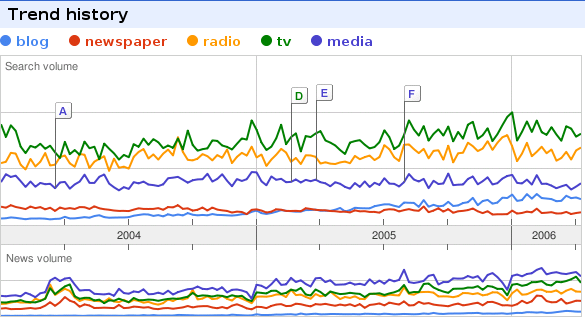Via Chris F. Masse, who does not provide a permanent link to his “external link” post, The Journal of Prediction Markets is launching late this year with several usual suspects on the editorial board. I used Inkling’s make your own market feature to create a play market in whether the journal will be Open Access:
Pays if the Journal of Prediction Markets is listed in the Directory of Open Access Journals before 2008/01/01.
See the Wikipedia article for background on
Open Access.
Just for kicks — as an insider decision, this is probably not a good subject for a prediction market.
I noted with interest that the journal is to be published by the University of Buckingham Press, the publishing arm of apparently the only university in the UK jurisdiction not funded by the state. Although it is small I am surprised I had not heard of this university previously due to its free market connections or in the Economist, which loves to write about the sorry state of British higher education and the even sorrier state of higher education on the European continent.
Should I take this opportunity to ask Mr. Masse (who is entirely above insinuation, a better person than I) about French universities?
Addendum 20060523: Masse thinks I’m crazy for creating a market on Inkling. He doesn’t like Inkling because they removed one of their founders from their site (irrelevant, Masse-ive overreaction) and believes that liquidity is the most important attribute of an exchange, implied corollaries being that it is dumb to start a new exchange in an area where one already exists and it is dumb to allow user-created markets, both of which will lead to diffuse, thinly-traded markets. I think the field is far too young to say that a newcomer cannot topple existing exchanges even if they are natural monopolies (We’ve discussed this before) or that large numbers of niche (and thus thinly traded) claims will not prove valuable.
Why has Masse not created a market at Inkling? Is his consultancy page correct?
Each player in the field only sees his/her little part of it —I have to have the complete, global, situational, long-term, overview outlook perspective.
Is he overconfident in his negative assessment of Inkling or merely falling behind in his research?
